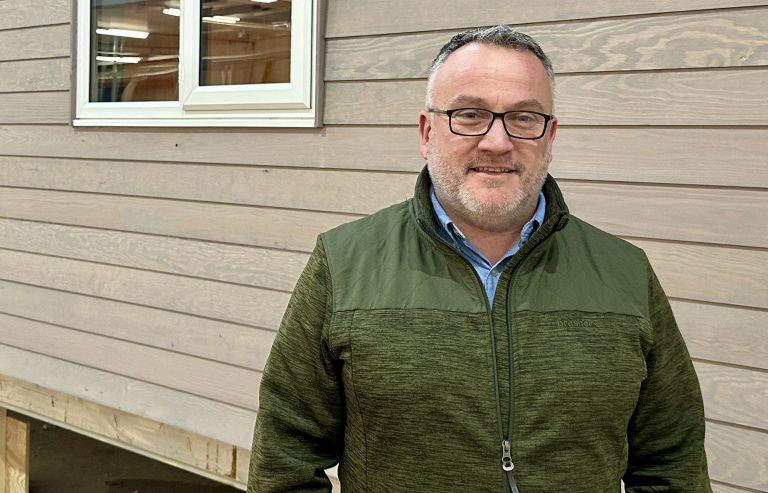Work starts to create enhanced community facilities at Barrow Hill Memorial Hall
East Midlands confidence dips in February
Finedale Foods acquires historic George Adams 1910 brand
Finedale Foods has acquired the intellectual property of the George Adams 1910 meat products brand, following its collapse in January and the closure of its Lincolnshire manufacturing site. Production will resume at Finedale’s facility in Norfolk in the coming weeks.
The acquisition includes the brand’s trademark, recipes, and other non-physical assets. George Adams 1910, known for its pies, sausage rolls, and Scotch eggs, supplied the retail and food service sectors across the UK.
Finedale Foods, which also owns the Frank Dale Foodservice and Deli Santé brands, sees the acquisition as a strategic fit that expands its production capabilities. The company specialises in ready-to-eat pastry and meat products, serving private labels and its brands.
The George Adams 1910 range will now be produced at Finedale’s BRC-accredited site in Norfolk. The company aims to build on the brand’s 113-year heritage.
AstraZeneca opens Lincolnshire biogas plant to power UK operations
AstraZeneca and renewable energy firm Future Biogas have launched a biogas plant in Gonerby Moor, Lincolnshire, to supply renewable energy for the pharmaceutical company’s UK operations.
The Moor Bioenergy plant will generate 100 gigawatt hours of biomethane annually, meeting the heating needs of more than 8,000 homes. By the end of 2024, AstraZeneca aims to power all its UK research and manufacturing facilities with clean energy, reducing its reliance on fossil fuels. The company expects the plant to offset 18,000 tonnes of CO₂ emissions per year, equivalent to 20% of its total global gas consumption.
Unlike some renewable energy projects, the plant was developed without government subsidies. AstraZeneca says the investment aligns with its broader goal of achieving 100% renewable energy across all global operations by the end of this year and reaching net-zero emissions by 2045.
AstraZeneca shares rose 0.24% to 11,910p on Thursday, reflecting a 15% increase over the past year.
UK firms maintain diversity goals despite US policy shift
According to Employment Rights Minister Justin Madders, UK businesses are expected to continue supporting diversity and inclusion initiatives despite US companies scaling back similar efforts.
Madders stated that British firms have their “own approach” to equality and are unlikely to follow the US trend, where companies like Google, Meta, Amazon, and McDonald’s have rolled back diversity programmes. The shift in the US came after Donald Trump’s election victory and executive orders that eliminated federal diversity, equity, and inclusion (DEI) policies.
In contrast, UK firms such as Deloitte and Barclays reaffirmed their commitment to diversity. Apple shareholders also rejected a proposal that aligned with Trump’s stance on workplace DEI initiatives.
Meanwhile, the UK government has introduced an Employment Rights Bill to enhance worker protections, including for pregnant employees and new mothers, while making flexible work the default. However, new hires will face a nine-month probation before gaining unfair dismissal protections, addressing business concerns over “day 1” employment rights.
Boston stores shut down over criminal activity
Three retail businesses in Boston—Sky Store (34 High Street), Bode (92 High Street), and Boston Food Store (10 Red Lion Street)—have been issued Closure Orders following evidence of criminal activity. The orders, granted by Boston Magistrates’ Court on February 25, fall under Section 80 of the Anti-Social Behaviour, Crime and Policing Act 2014 and will remain in effect for three months.
During this period, access to the premises is restricted to utility workers, postal services, and emergency personnel. Authorities have warned that any unauthorized entry could result in fines or imprisonment.
Lincolnshire Police and Trading Standards gathered intelligence through community reports and proactive enforcement efforts. Further extensions may be sought if criminal activity is expected to continue. Officials are also working with landlords to establish long-term solutions, with potential investigations into those receiving rent from illicit operations.
Authorities urge the public to report any breaches of the Closure Orders, which are in place until May 24, 2025.
Chesterfield businesses face higher costs as council raises taxes and fees
Chesterfield Borough Council has approved a 2.99% council tax hike and new fees that will impact local businesses.
The tax increase, along with a 2.7% rise in rents, follows a £4 million budget shortfall. Businesses will see higher costs through increased charges for town centre parking, waste collection, and venue rentals. The council is also cutting support for public advice services and closing the Visitor Information Centre.
Officials warn of continued financial challenges, with potential further hikes in 2026-27 if government funding remains uncertain. Businesses reliant on council services should prepare for rising expenses.
Peak District campsite to build events barn after fire
Hartington Hills, a Peak District campsite, has received planning approval to construct a new events barn following a fire in June 2024 that destroyed key infrastructure and a holiday cottage.
The approved plans allow the new barn to host events and workshops, a long-term goal for the business. Construction has begun on critical infrastructure, including heating and water systems, with the complete build set for completion by spring 2026. The first workshops and events are expected to occur in the summer.
Hartington Hills, established in 2011 and located near Buxton, plans to collaborate with local artisans, educators, and businesses to develop event programming.
EU revises green rules to ease business burden
The European Union is adjusting its environmental regulations to reduce business compliance costs while maintaining its commitment to decarbonisation. The move follows pressure from industry leaders and major economies like France and Germany, which have raised concerns over high energy costs and regulatory burdens.
The European Commission introduced a “Clean Industrial Deal” to cut red tape, lower electricity taxes, and refine corporate sustainability reporting requirements. Under the proposed changes, large companies would report on supply chain impacts every five years instead of annually, and the reporting threshold would increase from firms with 250 employees to those with over 1,000.
Despite the adjustments, the EU reaffirmed its goal of carbon neutrality by 2050 and its target to reduce greenhouse gas emissions by 55% by 2030. However, the revisions face opposition from environmental groups and some lawmakers, who argue that scaling back regulations could undermine sustainability efforts. The proposals require approval from EU member states and the European Parliament.











